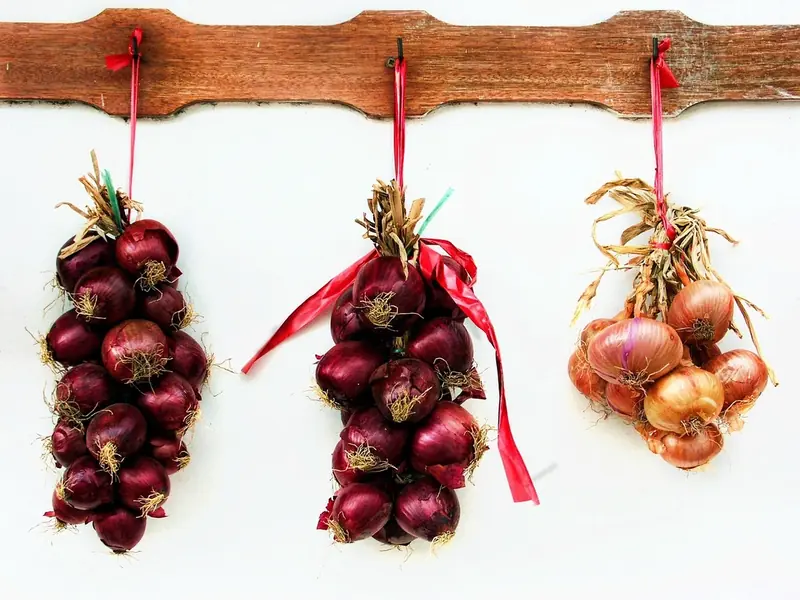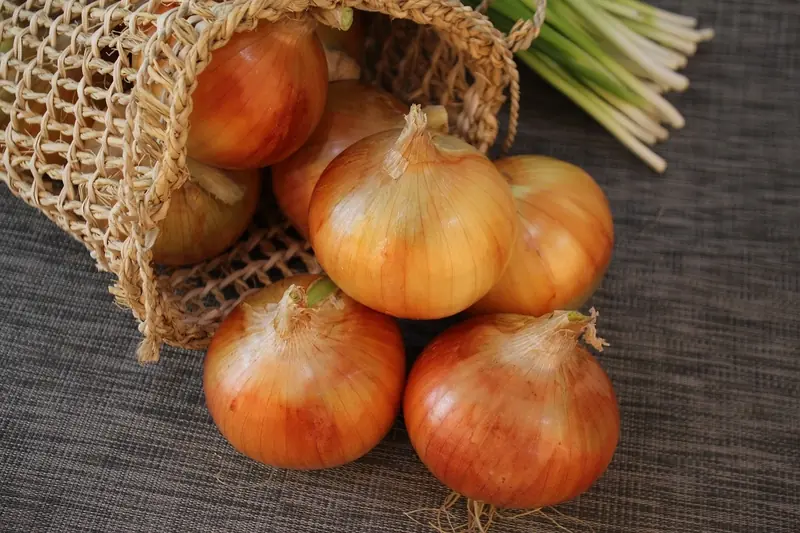
If your onion bulbs spoiled faster than you expected, chances are you stored them incorrectly.
For instance, you might have put your favorite vegetable in the fridge, only to find it turned into a mushy mess shortly after. This happens because low temperatures accelerate the conversion of starches into sugars, causing the onion to become soft and mushy.
“Whole onions should not be stored in the refrigerator. They quickly absorb moisture and become soft,” says Merissa Alink, a well-known American blogger, nutrition expert, and author of the book “Living in a Small House.”
Instead, Ms. Alink recommends placing onions in a dark, well-ventilated area, such as a pantry or drawer. However, the pantry shouldn’t be too warm, as the vegetable will sprout quickly.
How to Prevent Onions from Spoiling Quickly?
Onions, like most fruits and vegetables, are still alive when we eat them. This means their cells continue to breathe, consuming oxygen and sugar to produce energy, which significantly affects the vegetable’s shelf life.
When onion bulbs freeze, they start converting their starch reserves into sugar to provide energy for the plant. The same thing happens with carrots, which become much sweeter and softer after being stored in the refrigerator.
On the other hand, when onions warm up, they begin to burn their sugars and grow green shoots. Of course, these shoots are edible. However, the quality of the onion itself will no longer meet the expectations of home cooks.
The Humidity Factor
Experts say that this vegetable should not be placed in the refrigerator not only because of the low temperature but also due to the high humidity levels that cause rot.
Ms. Alink advises: “Store onions in a dry place where moisture cannot penetrate to prevent the vegetable from spoiling and rotting. Don’t keep onions under the sink or in a damp basement.”
The blogger also warns against storing onions in plastic bags, which is how they are often sold. These bags trap moisture, causing the onions to rot faster, she said.

What’s the Solution?
Experts believe that the best way to store onions is in a container that allows for maximum air circulation, as reported by the Daily Mail. Researchers from Iowa State University recommend: “Place onions in a mesh bag, an old nylon stocking, a wire basket, or a crate.”
Keeping this vegetable in nylon stockings or tights is an old tried-and-true method. They are filled with onions and then tied off. It’s ideal if there’s a place in your home to hang the stockings with onions, as this will ensure adequate air circulation.
What About Chopped Onions?
However, chopped or peeled onions should be kept in the refrigerator, where they can last about two weeks at the right temperature.
Merissa Alink noted: “Chopped, minced, and cooked onions should always be stored in the refrigerator. They are not suitable for pantry storage.”
Unlike whole onions, the chopped vegetable needs to be tightly wrapped in an airtight material to prevent it from rotting.
In general, due to the rapid accumulation of moisture in the confined space of the refrigerator, delicate fruits and vegetables are better stored in airtight containers.
“A halved onion should be tightly wrapped in plastic wrap and placed in an airtight container, while chopped onions should be placed in a zip-top plastic bag,” explained Ms. Alink.

